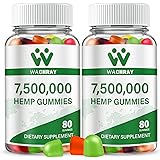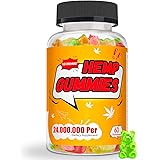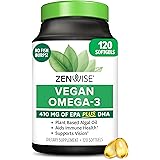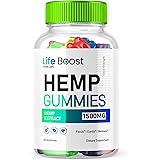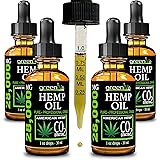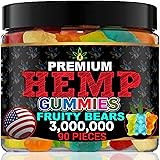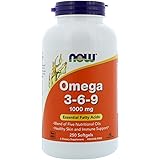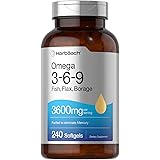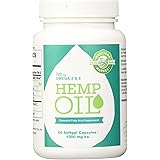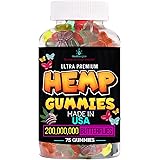The conversation around CBD oil in Kentucky is evolving rapidly, moving from whispers in health food stores to prominent displays in mainstream retailers. As highlighted in the insightful discussion above, Kentucky’s deep-rooted agricultural heritage, particularly its history with hemp, is now intertwining with modern wellness trends and entrepreneurial spirit. This convergence creates a fascinating landscape for cannabidiol products, positioning the Bluegrass State at the forefront of a burgeoning industry.
Firstly, understanding the distinction between hemp, marijuana, and the ubiquitous CBD oil is paramount. Both hemp and marijuana are varieties of the Cannabis sativa plant, yet they possess vastly different chemical profiles and legal statuses. The critical differentiator lies in their tetrahydrocannabinol (THC) content, the primary psychoactive compound. In the United States, industrial hemp, from which most CBD is derived, is legally defined as cannabis with 0.3% or less THC by dry weight, making it non-intoxicating and distinct from marijuana.
Secondly, Kentucky’s agricultural narrative is deeply etched with hemp cultivation, long before its current resurgence as a source for CBD. Historically, Kentucky was a leading producer of hemp, utilized for its durable fibers in ropes, textiles, and paper. This legacy was largely supplanted by other cash crops like tobacco and later by cattle farming, as noted in the discussion of Mount Folly Farm’s transition. The 2018 Farm Bill, however, marked a pivotal moment, re-legalizing hemp cultivation federally and paving the way for a new era of agricultural innovation and economic diversification across states like Kentucky.
Laura Freeman’s Vision: Pioneering CBD Oil in Kentucky
The journey of entrepreneurs like Laura Freeman of Mount Folly Farm offers a compelling case study in this evolving industry. Her name, synonymous with the successful “Laura’s Lean Beef” brand, speaks volumes about her business acumen and dedication to scientific rigor. When she sold Laura’s Lean Beef in 2008 for a remarkable $151 million, it underscored her ability to build a robust, science-backed enterprise that resonated with consumers seeking healthier options, specifically low-fat and later, organic grass-fed, no-antibiotic beef. This foundation of scientific process and market insight now underpins her foray into hemp-derived CBD products.
Transitioning from cattle to a hemp crop five years ago, Laura Freeman’s strategic pivot demonstrates a keen understanding of emerging markets and consumer needs. Her focus on developing high-quality CBD oil from her land aligns perfectly with the growing demand for natural wellness solutions. This move not only leverages Kentucky’s agricultural potential but also applies the same rigorous, scientific approach that made her beef business a national success. Such leadership is crucial in an industry still grappling with standardization and consumer trust.
Decoding the Science: CBD, Wellness, and Efficacy
The interest in CBD oil largely stems from its purported therapeutic benefits, which are gaining increasing attention from both consumers and the scientific community. As discussed, many individuals are exploring CBD for issues ranging from chronic pain, particularly osteoarthritis, to stress, anxiety, and sleep disorders. The underlying mechanism involves CBD’s interaction with the body’s endocannabinoid system (ECS), a complex network of receptors and neurotransmitters that plays a crucial role in regulating various physiological processes, including mood, pain sensation, appetite, and sleep.
While anecdotal evidence abounds regarding CBD’s efficacy for these conditions, the scientific jury, as the male speaker rightly points out, is still out on many definitive claims. Initial studies and preclinical research are highly promising, particularly concerning CBD’s anti-inflammatory and anxiolytic (anxiety-reducing) properties. For instance, a 2019 study published in The Permanente Journal found that CBD significantly reduced anxiety scores in 79% of participants and improved sleep scores in 66%. However, robust, large-scale human clinical trials are still needed to solidify these findings and establish standardized therapeutic guidelines across a wider range of conditions.
Moreover, the distinction between “hemp” products and “CBD oil” products, as briefly mentioned, can sometimes confuse consumers. While CBD is a cannabinoid derived from the hemp plant, a “hemp extract” or “hemp oil” product might refer to full-spectrum hemp extract, which contains CBD along with other beneficial cannabinoids, terpenes, and flavonoids, potentially leading to an “entourage effect.” Conversely, some products might be made from hemp seed oil, which is rich in fatty acids but contains negligible cannabinoids. Understanding product labeling and the specific cannabinoid content, typically verified by third-party lab reports or Certificates of Analysis (COAs), is essential for consumers.
Navigating the Legal Landscape of CBD in Kentucky
The legal framework surrounding CBD oil in Kentucky, and indeed nationwide, remains a dynamic and often complex terrain. The passage of the 2018 Farm Bill federally legalized industrial hemp, removing it from the Controlled Substances Act. This momentous legislative change directly empowered farmers in Kentucky, like Laura Freeman, to cultivate hemp crops. However, this federal legalization did not automatically mean an unfettered market for all CBD products.
The federal Food and Drug Administration (FDA) has consistently maintained that CBD cannot be legally marketed as a dietary supplement or added to food and beverages, citing its approval as a pharmaceutical drug (Epidiolex for epilepsy). This stance creates a significant regulatory grey area, leading to states having to define their own rules and enforcement. Consequently, while products are openly sold in grocery stores and dedicated kiosks, the exact parameters of what is permissible—especially for ingestible products versus topicals—are still subject to ongoing debate and evolving state-level regulations. This rapidly changing environment requires vigilance from both producers and consumers alike.
Administering CBD: Dosage and Best Practices
For those considering CBD oil, understanding proper administration and dosage is crucial for maximizing potential benefits and ensuring a safe experience. Laura Freeman’s personal experimentation and subsequent recommendation of 25 milligrams daily, delivered sublingually (under the tongue), offers a practical starting point. This method allows for faster absorption into the bloodstream compared to edibles, bypassing the digestive system and liver metabolism to some extent, thereby increasing bioavailability.
Many individuals, especially those new to CBD, are advised to “start low and go slow,” gradually increasing their dosage until the desired effects are achieved. Factors such as body weight, individual metabolism, the severity of the condition being addressed, and the concentration of the CBD product all play a role in determining an effective dose. While dog treats and other pet products are also available, it is important to remember that dosing for animals should always be done under the guidance of a veterinarian who is knowledgeable about cannabis compounds, as their physiology differs significantly from humans.
As the market for CBD oil in Kentucky continues to expand, driven by innovative farmers and entrepreneurs like Laura Freeman, the emphasis will increasingly shift towards scientific validation, robust quality control, and a clearer regulatory framework. This convergence of Kentucky’s agricultural roots, entrepreneurial spirit, and a growing consumer interest in natural wellness positions the state as a significant player in the national CBD landscape, fostering both economic growth and a deeper understanding of this fascinating compound.


